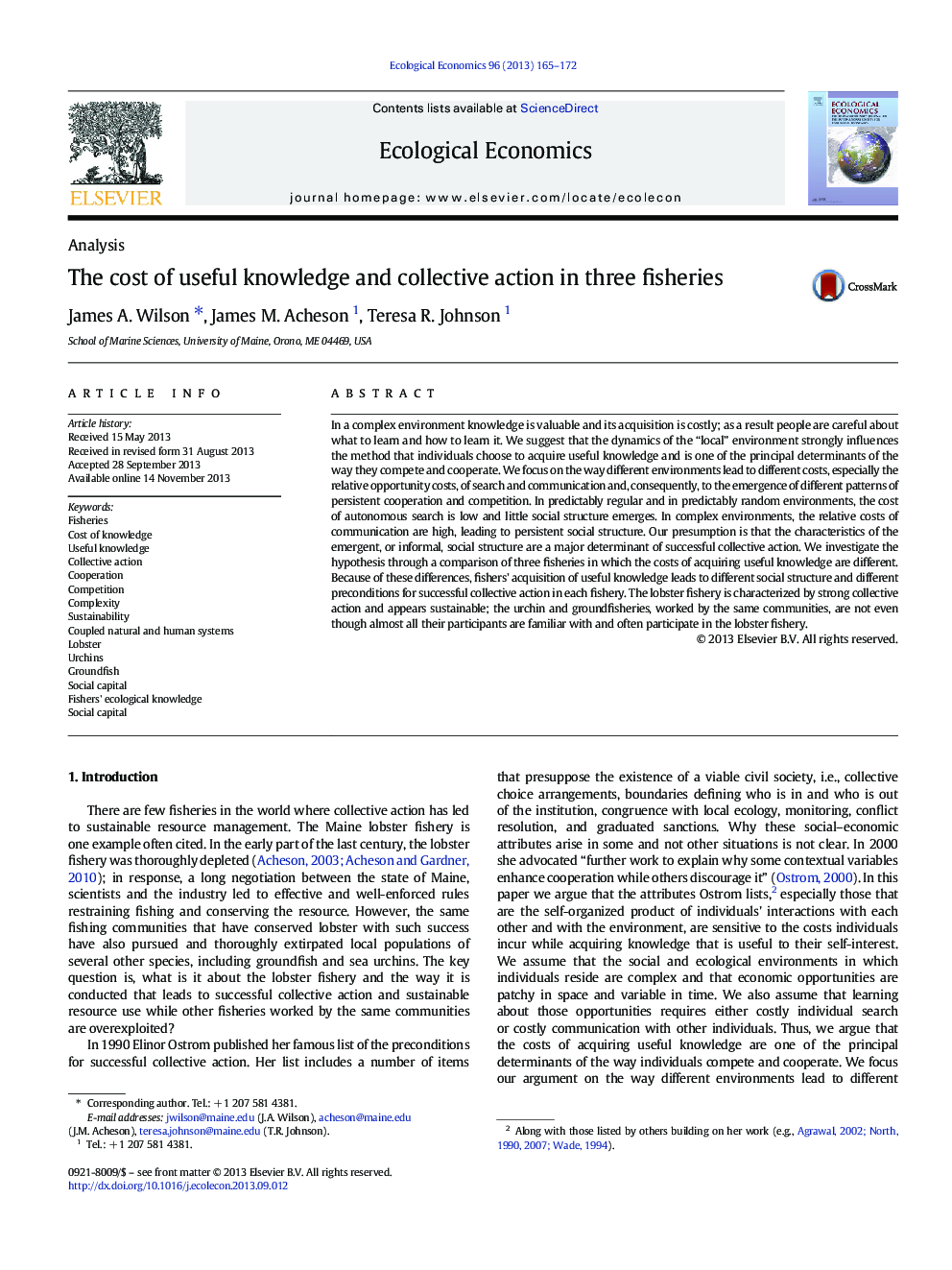| کد مقاله | کد نشریه | سال انتشار | مقاله انگلیسی | نسخه تمام متن |
|---|---|---|---|---|
| 5049921 | 1476383 | 2013 | 8 صفحه PDF | دانلود رایگان |
- The relative costs of individual search and of communication determine the extent of cooperation and competition.
- The complexity of the environment affects the relative costs of autonomous search and communication.
- Different environments have different search and communication costs and different social and conservation outcomes.
- Informal social structure (capital) strongly influences the likelihood of successful collective action and sustainability.
- Three fisheries - lobster, urchin, and groundfish - with different relative information costs and different conservation outcomes.
In a complex environment knowledge is valuable and its acquisition is costly; as a result people are careful about what to learn and how to learn it. We suggest that the dynamics of the “local” environment strongly influences the method that individuals choose to acquire useful knowledge and is one of the principal determinants of the way they compete and cooperate. We focus on the way different environments lead to different costs, especially the relative opportunity costs, of search and communication and, consequently, to the emergence of different patterns of persistent cooperation and competition. In predictably regular and in predictably random environments, the cost of autonomous search is low and little social structure emerges. In complex environments, the relative costs of communication are high, leading to persistent social structure. Our presumption is that the characteristics of the emergent, or informal, social structure are a major determinant of successful collective action. We investigate the hypothesis through a comparison of three fisheries in which the costs of acquiring useful knowledge are different. Because of these differences, fishers' acquisition of useful knowledge leads to different social structure and different preconditions for successful collective action in each fishery. The lobster fishery is characterized by strong collective action and appears sustainable; the urchin and groundfisheries, worked by the same communities, are not even though almost all their participants are familiar with and often participate in the lobster fishery.
Journal: Ecological Economics - Volume 96, December 2013, Pages 165-172
